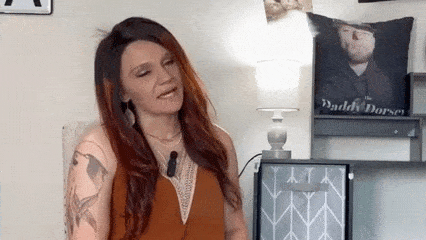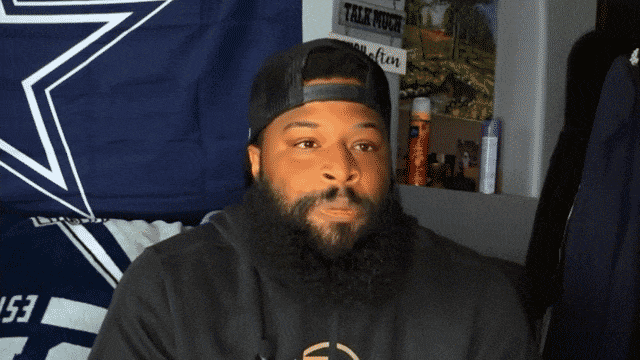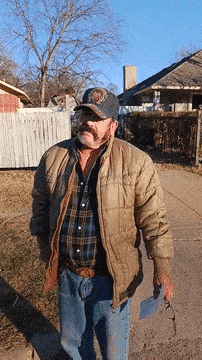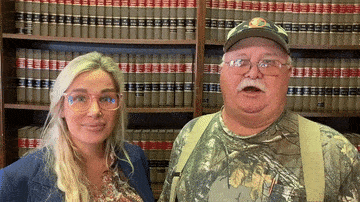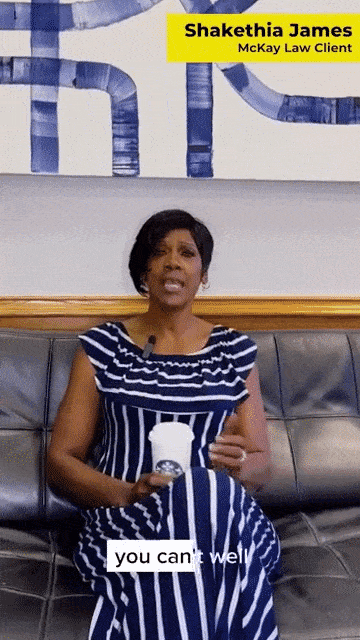“Texas Tough” McKay Law
Texas Premises Liability Lawyer
For those navigating the aftermath of injuries caused by unsafe property conditions, McKay Law stands as a trusted advocate in Texas. With a deep understanding of premises liability cases, the firm is driven by a commitment to securing justice for victims. Known for their unwavering dedication and client-focused approach, McKay Law has built a reputation for protecting rights and achieving meaningful outcomes. Whether it’s a slip-and-fall accident, negligent security, or hazardous property maintenance, their proven track record speaks volumes about their expertise and compassionate care.
NO FEES UNLESS WE WIN!
We only get paid when you get paid.
Receive Immediate Medical Care
Get the medical attention you need with no out-of-pocket cost in most cases.
24/7 Access To Us
We are here for you 24/7 so you can focus on healing.
Client Satisfaction
McKay Law has a reputation to be proud of with 300+ 5 star Google Reviews.
Texas Premises Liability Attorney | McKay Law
When it comes to premises liability cases in Texas, McKay Law has established itself as a leader in the field. With a deep understanding of state laws and extensive experience handling a wide range of cases—from slip-and-fall accidents to inadequate security claims—the firm is committed to fighting for the rights of injury victims. Their team has built a track record of holding property owners accountable for negligence, ensuring that clients receive the compensation they deserve. No matter the complexity of the case, McKay Law uses their legal expertise and skill to deliver justice for those harmed by unsafe premises.
At the heart of McKay Law’s practice is an unwavering dedication to their clients. They recognize that every injury has its own story and that every victim deserves personalized legal support. From the initial consultation to the resolution of a case, the firm tailors its approach to meet the unique needs of each client. By providing clear communication, compassionate guidance, and strategic representation, McKay Law ensures that their clients feel confident and supported throughout the entire legal process. Their commitment to one-on-one attention distinguishes them as more than just attorneys—they are trusted advocates for their clients’ well-being.
McKay Law’s reputation as a trusted partner in premises liability cases is bolstered by their focus on achieving meaningful outcomes. They measure their success by the positive impact they make in their clients’ lives, whether securing a settlement to cover medical bills or achieving a verdict that brings closure and accountability. Through their dedication to ethical advocacy and their relentless pursuit of justice, McKay Law has earned the trust of countless Texans. For individuals and families seeking a law firm that prioritizes their needs while fighting for justice, McKay Law stands out as a powerful ally.
Understanding Premises Liability in Texas
Premises liability governs the legal responsibility property owners and managers have when someone is injured on their property due to hazardous or unsafe conditions. It serves as an essential component of personal injury law, ensuring that property owners maintain a safe environment for visitors and users. This blog post provides a deep dive into premises liability in Texas—what it entails, examples of common cases, and the rights of victims.
What is Premises Liability?
Premises liability is a legal concept that holds property owners or occupiers accountable when someone is injured due to unsafe conditions on their property. Unlike general personal injury claims, these cases specifically focus on injuries caused by the property’s condition, such as wet floors, broken stairs, or inadequate lighting.
Key Factors in Premises Liability Cases
To establish premises liability in Texas, injured parties usually need to prove the following:
- A hazardous condition existed on the property.
- The property owner was aware of—or should have been aware of—the hazard.
- The hazard directly caused the injury.
- The injured party was lawfully on the property (e.g., not trespassing).
Texas law also considers the status of the injured individual. Victims are classified as invitees, licensees, or trespassers. Property owners owe varying levels of duty toward each classification:
- Invitees – These are customers or guests invited onto the premises for business purposes. High standards of care apply.
- Licensees – These are social guests or individuals allowed on the property for non-business purposes. A moderate duty of care applies, focusing on warning of known dangers.
- Trespassers – Property owners have minimal duties toward trespassers but cannot intentionally cause harm.
Premises Liability in Texas Law
Texas law is explicit in holding property owners accountable for maintaining reasonably safe conditions. However, the state follows a modified comparative fault system, which means that victims can only recover damages if they are found to be less than 51% responsible for the accident. If the injured party contributes more than 50% to the incident, they cannot recover compensation.
Additionally, Texas imposes a two-year statute of limitations for filing premises liability lawsuits. If victims fail to initiate legal action within this time frame, they may lose their right to recover damages.
Common Premises Liability Cases
Premises liability cases come in many forms, but they all share a common thread — unsafe property conditions that lead to injury. Below are some of the most frequent scenarios:
1. Slip-and-Fall Accidents
Slip-and-fall cases are among the most common types of premises liability claims. These typically occur due to:
- Wet or slippery floors without warning signs
- Uneven tiles, cracked sidewalks, or unsecured carpeting
- Poorly lit areas that affect visibility
Example: A customer in a supermarket slips on a wet floor where no warning sign was posted. If the store’s management knew about the hazard but failed to address it, they might be liable for any injuries.
2. Negligent Security
Property owners must take reasonable measures to ensure their premises are secure. This is especially relevant for locations like apartment complexes, parking lots, and event venues. Security failures, such as inadequate lighting, broken locks, or lack of surveillance cameras, can lead to assaults, thefts, or other criminal activities.
Example: A tenant in an apartment complex is attacked in a poorly lit parking lot with a history of criminal activity. If the landlord failed to install functional lighting or security systems, they could be held accountable.
3. Unsafe or Hazardous Conditions
Poorly maintained properties often lead to conditions that are dangerous for visitors. Examples include collapsing ceilings, exposed wiring, or falling objects.
Example: A restaurant’s outdoor patio has a loose railing that gives way, causing a diner to fall and suffer injuries. If the restaurant owner failed to repair or warn of the hazard, they could face legal consequences.
4. Dog Bites
While dog bite cases in Texas may fall under premises liability, the state follows a “one bite rule,” meaning the owner may only be held liable if they knew the dog had a history of aggression.
Example: A visitor at a private residence is bitten by a dog with a documented history of biting others. The dog owner could be held liable for failing to secure the animal.
Responsibilities of Property Owners
Property owners in Texas bear the responsibility of maintaining a safe environment for lawful visitors. This includes:
- Regular inspections to identify hazards
- Immediate remediation of dangerous conditions
- Posting adequate warnings for known hazards
- Implementing appropriate safety measures, such as installing handrails, repairing damaged pathways, and ensuring proper lighting
For landlords or business owners, this duty extends further to cover elements like building code compliance, regular maintenance, and security-enhancing measures. Proactively addressing potential dangers can prevent accidents and protect visitors as well as the owner.
Victims’ Legal Rights in Premises Liability Cases
Victims injured due to unsafe property conditions have a right to seek compensation for their damages. Recoverable damages may include:
- Medical Expenses – Covering hospitalization, medication, therapy, and future medical care.
- Lost Wages – Compensation for time missed at work or reduced earnings capacity.
- Pain and Suffering – Addressing emotional distress and diminished quality of life caused by the injury.
- Punitive Damages (in rare cases) – If the property owner’s negligence is particularly egregious.
Navigating premises liability claims often requires victims to gather substantial evidence, such as photographs of the hazard, witness accounts, and medical documentation. Consulting with a skilled attorney is crucial for maximizing compensation and understanding legal nuances.
Why Seeking Legal Advice is Crucial
Premises liability cases can be intricate, especially when determining fault or seeking fair compensation. A seasoned attorney provides invaluable guidance by:
- Evaluating the merits of your case
- Negotiating with insurance companies
- Representing your interests in court, if necessary
- Ensuring you meet key deadlines, such as the statute of limitations
For example, an attorney could demonstrate how the property owner failed to meet their duty of care, strengthening the victim’s case. Legal professionals also help identify and counter any arguments that may unfairly shift blame onto the victim.
Final Thoughts
Premises liability ensures property owners uphold their duty to maintain safe environments, protecting visitors from preventable harm. Whether you are a guest at a store or a tenant in an apartment complex, understanding your rights under Texas law can make all the difference should an accident occur.
If you’ve been injured as a result of unsafe property conditions, contact a qualified personal injury lawyer to discuss your case. Acting quickly can help you secure the compensation you deserve while holding negligent property owners accountable.
Lindsey McKay Takes Texas Premises Liability Cases Seriously
When you visit someone else’s property—whether it’s a grocery store, an apartment complex, or even a hotel—you expect to be safe. Unfortunately, some property owners neglect their legal duty to maintain safe conditions, leading to injuries that can disrupt lives. For people in Texas who find themselves in these situations, Lindsey McKay has become a trusted advocate, relentlessly fighting for justice in premises liability cases.
With her dedication, expertise, and unwavering commitment to her clients, Lindsey McKay has made it her mission to help individuals who have been injured due to the negligence of property owners or managers.
What Is Premises Liability?
Premises liability refers to a property owner’s legal responsibility for maintaining a safe environment for those who visit their property. If unsafe conditions lead to an injury, the property owner may be held liable. Common examples of premises liability cases include slip-and-fall accidents, dangerous property conditions, and negligent security measures that enable assaults or thefts.
However, proving negligence in a premises liability case can be complex. That’s where Lindsey McKay’s expertise shines. She understands the intricacies of Texas law and has the skills to craft compelling cases that get results for her clients.
Lindsey McKay’s Commitment to Premises Liability Victims
Lindsey doesn’t just take on premises liability cases—she takes them personally. She believes individuals injured due to unsafe premises deserve both justice and fair compensation. Her approach is built on thorough case preparation, compassionate client advocacy, and a deep understanding of Texas property laws.
For Lindsey, every case is more than just paperwork. It’s about holding negligent property owners accountable and helping her clients rebuild their lives after preventable accidents.
Expertise That Makes a Difference
Navigating a premises liability case requires extensive legal knowledge, investigative skills, and the ability to prove that negligence directly caused an injury. Lindsey McKay excels in all these areas. She meticulously examines each case, looking for evidence that helps establish a property owner’s failure to maintain a safe environment.
Her ability to challenge opposing parties often leads to favorable outcomes for her clients, whether through settlement negotiations or courtroom battles. Lindsey understands what it takes to win these cases and fights tirelessly to secure the best possible results for those she represents.
Common Premises Liability Scenarios
Lindsey McKay handles a wide range of premises liability cases, including, but not limited to, the following examples:
Slip-and-Fall Accidents
Slip-and-fall incidents are among the most common types of premises liability cases. These often occur in places like grocery stores, restaurants, or shopping malls due to hazards like wet floors, uneven surfaces, or poor lighting. Lindsey has helped clients recover compensation for medical bills, lost wages, and other damages arising from these often-preventable accidents.
Dangerous Property Conditions
From broken staircases to exposed electrical wiring, property owners must address hazards to ensure the safety of guests and visitors. When they don’t, serious injuries can occur. Lindsey’s thorough investigations into property condition claims have helped clients win cases and secure justice against negligent owners.
Negligent Security
If a property owner fails to provide reasonable security measures—like working locks, adequate lighting, or security personnel—criminal acts such as assaults or robberies can happen. Lindsey McKay has successfully represented clients who were harmed because properties lacked sufficient security precautions.
Why Choose Lindsey McKay?
When people are injured due to unsafe premises, they may find themselves up against powerful property owners or insurance companies eager to deny responsibility. Lindsey McKay levels the playing field.
A Trusted Advocate
Clients praise Lindsey for her unwavering support and clear communication throughout the legal process. She takes the time to listen to her clients’ needs and concerns, ensuring they feel valued and understood.
Proven Results
Lindsey has a track record of successfully handling even the most complex premises liability cases. Her ability to uncover crucial evidence and present a compelling argument has made a real difference for her clients.
A Focus on Justice
Above all, Lindsey McKay believes everyone deserves justice when harmed due to someone else’s negligence. She works tenaciously to hold property owners accountable and help her clients achieve fair compensation for their injuries.
Client Success Stories
Lindsey McKay’s dedication is best illustrated through the real-world successes she has achieved for her clients. Here are just a few examples that showcase her expertise:
- Slip-and-Fall Recovery: Lindsey represented a client who suffered severe injuries after slipping on an unmarked wet floor at a local supermarket. Through persistent investigation and negotiation, she was able to secure a substantial settlement that covered medical expenses, lost wages, and pain and suffering.
- Unsafe Apartment Conditions: In another case, Lindsey advocated for tenants injured due to broken stair railings and poor lighting in a residential complex. Her commitment to uncovering safety violations led to swift compensation for her clients and prompted the property management to implement lasting safety improvements.
- Negligent Security Compensation: Lindsey also successfully helped a client assaulted in a poorly lit hotel parking lot, where inadequate security was a known issue. Her efforts resulted in a favorable outcome, bringing justice and much-needed closure to her client.
These stories reflect Lindsey’s relentless pursuit of justice, attention to detail, and determination to hold property owners accountable for failing to maintain safe premises.
Take the First Step Toward Justice
If you or a loved one has been injured due to an unsafe property in Texas, don’t wait to get the help you deserve. Lindsey McKay is ready to fight for your rights and guide you through every step of the legal process.
Contact Lindsey today to schedule a consultation. With her dedication and expertise, you can trust that your case is in capable hands.
What Are The Most Common Types of Premises Liability Injuries In Texas?
Premises liability injuries occur when someone is injured on another person’s property due to unsafe or hazardous conditions. In Texas, as in other states, property owners have a legal duty to maintain their premises in a reasonably safe condition for visitors. Here are some of the most common types of premises liability injuries in Texas:
1. Slip and Fall Accidents
- These are among the most common premises liability claims. They often occur due to wet floors, uneven surfaces, poor lighting, loose rugs, or unmarked hazards.
2. Trip and Fall Accidents
- Similar to slip and falls, these happen when someone trips over an object, uneven flooring, or other obstacles that should have been removed or marked.
3. Dog Bites and Animal Attacks
- Property owners can be held liable if their pet injures someone, especially if the animal has a history of aggression or the owner failed to restrain it properly.
4. Swimming Pool Accidents
- Drownings or injuries in swimming pools are common, particularly when pools lack proper fencing, warning signs, or supervision.
5. Falling Objects
- Injuries caused by falling objects, such as merchandise in a store or debris from construction sites, can lead to premises liability claims.
6. Inadequate Security
- If a property owner fails to provide adequate security measures (e.g., lighting, locks, or security personnel) and someone is injured due to criminal activity, the owner may be held liable.
7. Elevator and Escalator Accidents
- Malfunctioning elevators or escalators can cause serious injuries, often due to poor maintenance or mechanical defects.
8. Toxic Exposure
- Exposure to hazardous substances like mold, asbestos, or chemicals on a property can lead to health issues and liability claims.
9. Fire and Electrical Injuries
- Faulty wiring, lack of fire alarms, or other fire hazards can result in burns, smoke inhalation, or other injuries.
10. Structural Defects
- Collapsing ceilings, broken stairs, or poorly maintained railings can lead to severe injuries.
Key Considerations in Texas Premises Liability Cases:
- Legal Status of the Visitor: Texas law differentiates between invitees, licensees, and trespassers, with property owners owing the highest duty of care to invitees.
- Comparative Negligence: Texas follows a modified comparative negligence rule, meaning the injured party’s compensation may be reduced if they are found partially at fault for their injury.
If you or someone you know has been injured due to unsafe conditions on someone else’s property, consulting with a premises liability attorney can help you understand your rights and potential compensation.
What Damages Can I Receive from a Texas Premises Liability Claim?
Accidents can happen anywhere, but when an injury occurs on someone else’s property due to negligence, the concept of premises liability comes into play. Property owners have a legal responsibility to maintain safe conditions for visitors. If they fail to do so and someone gets hurt as a result, they may be held accountable. If you’ve suffered injuries because of unsafe conditions on a property in Texas, you might be entitled to compensation through a premises liability claim. These claims can cover a range of situations, including slip-and-fall accidents, poor maintenance, inadequate security, or hazards that were not properly addressed or warned about.
Understanding the types of damages you can claim and when premises liability applies is crucial in protecting your rights. Potential damages you may recover include medical expenses, lost wages, pain and suffering, and even compensation for future medical treatments if your injuries have long-term effects. The circumstances surrounding the accident, such as the type of property (residential, commercial, or public) and your reason for being there, can also influence the success of your claim.
This post outlines the basics of Texas premises liability law, the potential damages you can recover, and examples of common scenarios where such claims might be applicable. Whether it’s a slip-and-fall at a grocery store, tripping on uneven pavement, or being harmed due to the lack of proper security measures, knowing your rights is vital in holding negligent property owners accountable.
Understanding Premises Liability in Texas
Premises liability refers to a property owner’s responsibility to ensure their premises are safe for guests and visitors. Whether it’s a private homeowner, a business owner, or even a government entity, property owners in Texas must take reasonable steps to maintain a secure environment. When they fail to address unsafe conditions, they may be held liable for resulting injuries.
Texas law classifies visitors into three categories, which influence the level of care the property owner owes:
- Invitees – Customers or patrons who are on the property for business purposes (e.g., shoppers in a store). Property owners owe them the highest duty of care, which includes inspecting the property and addressing hazards promptly.
- Licensees – Social guests or others who are allowed to be on the property for non-commercial purposes. Property owners must warn them of known dangers but don’t necessarily have to inspect for hazards.
- Trespassers – Individuals who enter the property without permission. While property owners have limited obligations to trespassers, they cannot intentionally cause harm.
Common Examples of Premises Liability Cases
Premises liability claims can arise in various situations, including:
- Slip and Fall Accidents: Spilled liquids in a grocery store, uneven flooring, or icy sidewalks can pose serious risks.
- Inadequate Security: Poor lighting, broken locks, or lack of security personnel in high-risk areas might lead to assaults or other crimes.
- Dog Bites: Property owners may be liable if their pet attacks someone, especially if the animal has a history of aggression.
- Defective Conditions: Structural issues like collapsing stairs or balconies also fall under premises liability.
- Swimming Pool Accidents: Unfenced or improperly maintained pools can be dangerous, especially for children.
If any of these—or similar conditions—caused harm, you may be eligible for compensation.
Types of Damages You Can Recover
When filing a premises liability claim in Texas, there are several types of damages you could pursue. These damages fall into two main categories—economic and non-economic.
1. Economic Damages
Economic damages are measurable and directly tied to financial costs resulting from your injury. Examples include:
- Medical Expenses: This covers hospital bills, surgical costs, medication, physical therapy, and any future medical care related to the injury.
- Lost Wages: If your injury prevents you from working, you can seek compensation for the income you’ve lost during your recovery period.
- Loss of Earning Capacity: When an injury causes long-term or permanent impairment, you may claim damages for the impact on your future ability to earn a living.
- Property Damage: If personal property (e.g., clothing, electronics) was damaged or destroyed during the incident, you could recover those costs.
2. Non-Economic Damages
Non-economic damages are more subjective and relate to the mental and emotional toll of the injury. They include:
- Pain and Suffering: Compensation for physical pain and discomfort endured as a result of the injury.
- Mental Anguish: If an accident leads to anxiety, depression, PTSD, or similar conditions, damages may cover emotional distress.
- Loss of Enjoyment: You can seek recovery for the reduced ability to participate in hobbies, activities, or other enjoyable aspects of life.
- Disfigurement or Physical Impairment: Serious injuries that cause lasting scars, disabilities, or impairments may qualify for additional compensation.
3. Punitive Damages
While rare, Texas courts may award punitive damages if the property owner’s behavior was especially reckless or malicious. These damages are meant to punish egregious conduct and deter others from similar actions.
Steps to Take After a Premises Liability Injury
If you’ve been injured on someone else’s property, it’s important to take the following steps to strengthen your claim:
- Seek Medical Attention: Prioritize your health and document injuries with medical records.
- Report the Incident: Notify the property owner, landlord, or business manager about the accident and ensure a formal record is created.
- Gather Evidence: Take photos of the hazardous condition, your injuries, and surrounding areas. Collect witness contact information if possible.
- Contact a Lawyer: Premises liability claims can be complex, and a legal professional will help you understand your rights, build your case, and maximize your compensation.
Why You Should Consult a Legal Professional
Texas premises liability laws are nuanced and depend on factors like your visitor classification and the property owner’s duty of care. Proving negligence often requires evidence that the property owner knew—or should have known—about the dangerous condition and failed to address it. An experienced attorney can evaluate your case, negotiate with insurance companies, and take legal action if necessary.
If you’ve been injured due to an unsafe condition on someone else’s property, don’t wait to act. Lawsuits are subject to time limits under Texas’s statute of limitations, so it’s important to consult a legal professional as soon as possible.
Final Thoughts
Navigating a premises liability claim in Texas can feel overwhelming, but you don’t have to do it alone. With the right legal guidance, you can secure the compensation you deserve for medical expenses, lost wages, and emotional suffering. If you believe you have a claim, contact a premises liability attorney today to discuss your next steps.
Take action now to protect your rights and move toward recovery. Filing a successful premises liability claim can help offset the financial burden of your injuries and hold negligent property owners accountable. Don’t delay—consult a legal professional to explore your options.
The Texas Tough Difference
See why so many others choose McKay Law, PLLC
With over 300 five-star reviews, McKay Law, your local Personal Injury Law Firm has earned the trust and gratitude of our clients. Every case we handle is unique, and every client’s story matters. Don’t just take our word for it—hear directly from our clients about their experiences and why they confidently recommend us to others.
Premises Liability FAQs
Premises liability refers to the legal responsibility of property owners or occupiers to ensure their property is safe for visitors. If someone is injured on their property due to unsafe conditions, the owner may be held liable.
Anyone who is injured on someone else’s property due to negligence may file a claim. This includes customers, tenants, employees, or even social guests.
- Slip and Fall Accidents: Wet floors, uneven surfaces, or icy sidewalks.
- Inadequate Maintenance: Broken stairs, faulty elevators, or poor lighting.
- Negligent Security: Lack of security measures leading to assaults or theft.
- Dog Bites: Injuries caused by an owner's pet.
- Swimming Pool Accidents: Lack of fencing, supervision, or warning signs.
To succeed in a claim, you typically need to prove:
- The property owner owed you a duty of care.
- They were negligent in maintaining safe conditions.
- Their negligence directly caused your injury.
- You suffered damages (medical bills, lost wages, etc.).
- Invitees: People invited for business purposes (e.g., customers). Highest duty of care owed.
- Licensees: Social guests or those on the property with permission. Moderate duty of care owed.
- Trespassers: People on the property without permission. Limited duty of care owed, except for children in some cases (e.g., attractive nuisance doctrine).
- Seek medical attention immediately.
- Document the scene (photos, videos, witness statements).
- Report the incident to the property owner or manager.
- Keep records of medical bills and other expenses.
- Consult a premises liability attorney.
The statute of limitations varies by state but is typically 1-3 years from the date of the injury. It’s crucial to act quickly to preserve evidence and meet deadlines.
Not necessarily. Liability depends on whether the owner knew (or should have known) about the hazard and failed to address it. If the injured party was acting recklessly or ignored warnings, the owner may not be held responsible.
This legal principle applies to children who are injured on someone’s property due to a hazardous condition that is likely to attract them (e.g., swimming pools, trampolines). Property owners must take extra precautions to secure these dangers, even if the child is trespassing.
Victims may recover compensation for:
- Medical expenses (current and future).
- Lost wages or loss of earning capacity.
- Pain and suffering.
- Emotional distress.
- Property damage (if applicable).
